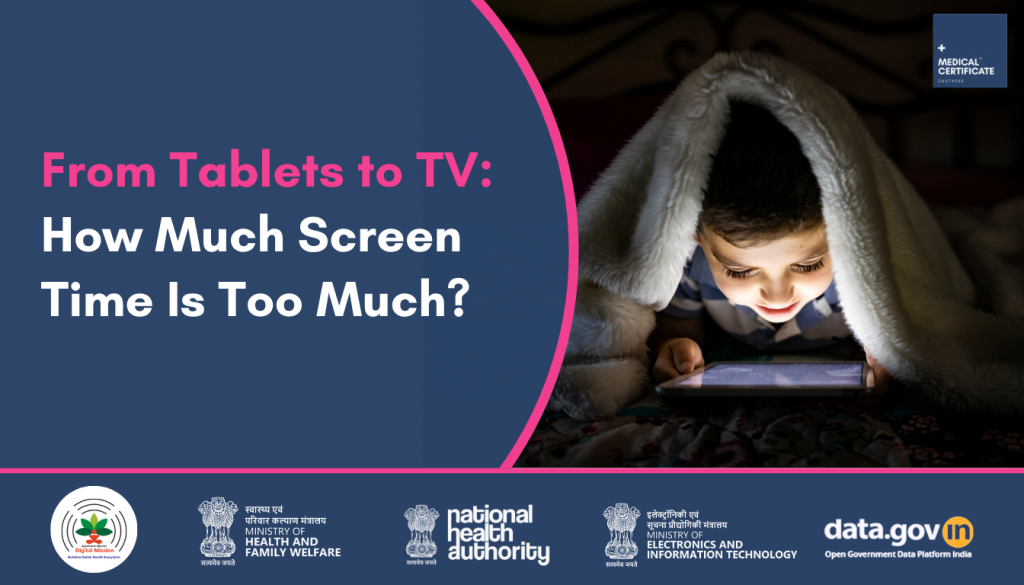Picture this. It’s 7:30 in the evening. Your children have finished dinner and you’re hoping to relax together as a family. Instead, they’re glued to their screens, eyes wide, fingers tapping, completely absorbed. You ask them to turn it off, and suddenly it feels like you’ve declared war.
If this sounds familiar, you’re not alone. Figuring out how to manage your child’s screen time is one of the trickiest parts of modern parenting. Too little, and you become the “mean” parent. Too much, and you feel guilty for turning your kids into little screen zombies. The truth is, screens are not going anywhere. This is the world we live in. What matters most is how we choose to handle screen time in our homes.
This isn’t meant to be a one-size-fits-all set of rules. It’s more of a real conversation about raising kids in a real world, where screen time struggles happen just as often as spilled bowls of cereal.
The Truth About Kids and Screens
Screens by themselves aren’t bad. In fact, they can be fantastic for learning, creativity, and staying connected. Educational games, video calls with grandparents, nature documentaries — these are all wonderful uses of technology.
Problems creep in when screen time stops being a treat or a tool and starts becoming the default. We’ve all been there. Waiting at the doctor’s office? Out comes the phone. Stuck indoors on a rainy day? Time for a Netflix marathon. Trying to calm a tantrum? A quick YouTube video does the trick.
Sometimes we use screens just to get through the day. That is perfectly understandable. The issue is that over time, these temporary solutions can crowd out the very things children need to develop in healthy ways. Kids thrive on physical play, using their imagination, even experiencing boredom. They need face-to-face conversations more than we realize.
So What Does Healthy Screen Time Actually Look Like?
There isn’t one perfect answer that fits every family. Still, experts give us some helpful general guidelines.
For children under two years old, there should be very little screen time, except for the occasional video chat with loved ones. Between ages two and five, aim for around an hour of high-quality content a day, and try to watch with them. For kids six and older, it’s less about strict time limits and more about creating consistent boundaries and paying attention to what they’re watching.
Watching an hour of an engaging, educational game is not the same as an hour spent mindlessly scrolling. Healthy screen time is about being intentional and thoughtful, not just cutting it off for the sake of rules.
What Happens When Screens Take Over?
If you’re wondering whether too much screen time does more harm than a little extra blue light or poor posture, the answer is yes. Many parents notice changes in their kids long before any study confirms it.
Children may melt down dramatically when the screen is taken away. They might lose interest quickly in activities that don’t involve screens. You might notice they are spending less time outside, reading books, or being active. Problems with bedtime often show up too, because late-night shows linger in their minds. Over time, some kids even start to pull back from friends and family, preferring their digital worlds to real-life play.
And we should remember that children don’t just listen to what we say. They copy what we do. If they see us constantly scrolling while telling them to put their screens away, they will follow our example more than our instructions.
How to Set Screen-Time Rules That Actually Work
Forget rigid rules that sound great on paper but fall apart by day two. Instead, try approaches that work in real homes with real kids.
Start by giving screen time a clear place in your family’s daily routine. Children naturally respond well to structure. When they know screens come after homework and some outdoor fun, it stops feeling like a fight every time. Simple house rules like no screens at meals or no screens an hour before bed help too. Put these expectations in writing where everyone can see them. A note on the fridge or a playful chart does the trick.
Try to watch or play along with your kids when you can. Ask questions, react to what’s happening, laugh together. It turns screen time into a shared moment instead of just a solo escape. Plus, it gives you a clear look at what they’re watching without feeling like you’re snooping.
Make sure there are real, attractive alternatives to screen time. Saying “go play” doesn’t mean much if there’s nothing to do. Keep art supplies handy, have building sets or puzzles easily reachable, or create a cozy corner with books. A little jar filled with slips of paper listing fun activities can work wonders when kids complain of boredom.
Start talking to your kids early about how technology works. Show them how ads and algorithms try to keep them hooked. Help them choose good YouTube channels or apps, and guide them as they learn. The goal is to raise kids who understand technology, not kids who just consume it without thinking.
What to Do When They Push Back
Expect resistance. Screens are designed to be addictive. Taking them away or limiting them might lead to complaints, boredom, or even full-on tantrums. Try to stay calm and stick to your limits with kindness. Let them know you understand their frustration. Offer small choices, like deciding between screen time later or a story right now.
And if all else fails, stand firm with love. Remember, you’re not just taking something away. You’re giving them back space to imagine, move, play, and truly connect with the world around them.
Handling the Guilt
It’s easy to beat yourself up. Some days, you might hand over the tablet just so you can finish a work call. Other days, you may lose track of time and suddenly realize they’ve been watching for hours.
That does not make you a bad parent. It makes you human.
Raising kids is not about being perfect every day. It’s about showing up, trying, adjusting, and being present. Every little step you take adds up. Each conversation about screens builds critical thinking. Every moment of connection, whether or not a screen is involved, lays down trust that lasts far beyond whatever show is on.
Finding Balance Without Turning It Into a Battle
Screen time doesn’t have to be the villain of your parenting story. It can be part of a balanced, healthy childhood if you stay involved and make thoughtful choices.
Take small steps that matter. Talk to your kids about what they watch and play. Be genuinely curious. Above all, be kind to yourself.
Parenting in a digital world means making daily choices about how to stay connected, have important conversations, and guide your kids toward using technology wisely. It’s not always simple, but every choice you make helps them grow into thoughtful, curious, and balanced people. And that is what truly matters.

